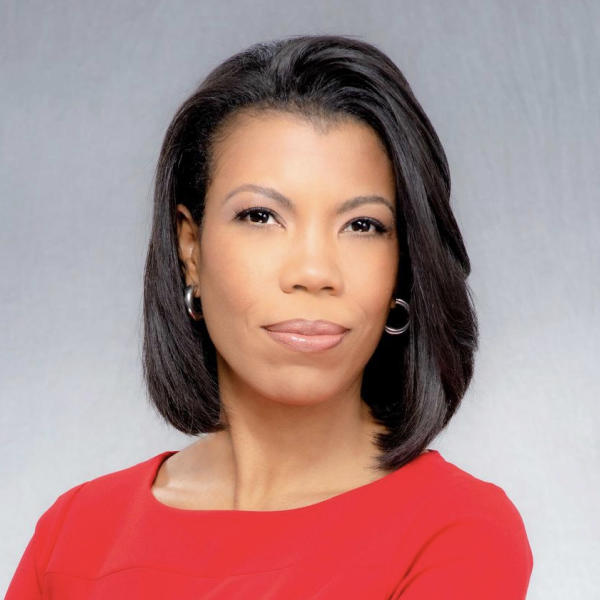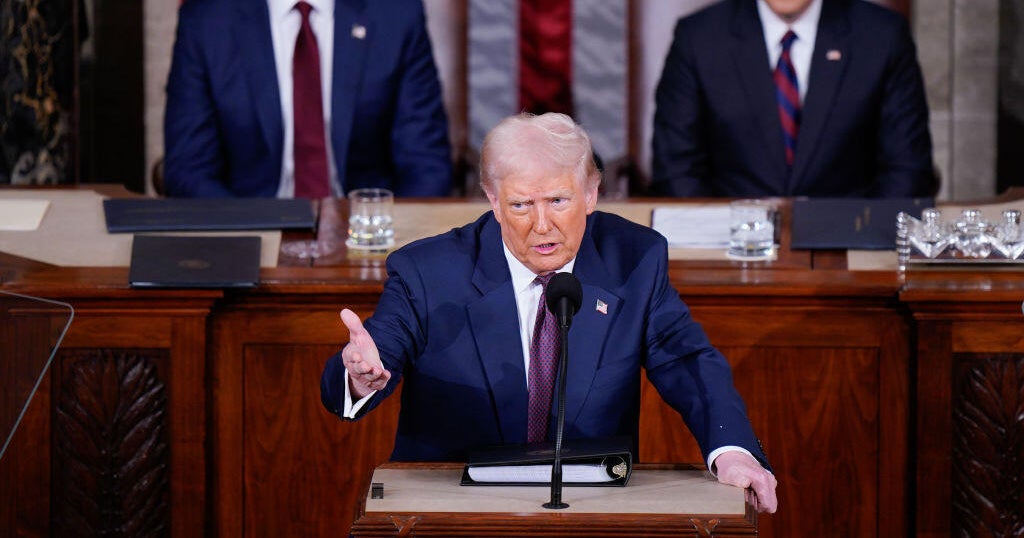Jim Jordan wins House GOP's nomination for speaker, but deep divisions remain
Washington — House Republicans on Friday selected Rep. Jim Jordan of Ohio as their second nominee for speaker of the House in less than three days, in the latest attempt to unite the party behind a candidate to fill the role that's been vacant since Rep. Kevin McCarthy's unprecedented ouster last week. The House left for the weekend late Friday afternoon without a permanent speaker.
The House Republican Conference nominated Jordan by secret ballot in a closed-door meeting less than a day after Majority Leader Steve Scalise of Louisiana withdrew his candidacy. The conference previously voted to nominate Scalise over Jordan on Wednesday, but the majority leader failed to attract enough support to win a majority in the full House and dropped his bid by Thursday evening.
Jordan won the support of 124 of his Republican colleagues, according to lawmakers. His total surpassed Scalise's tally of 113 from two days ago but still fell far short of the 217 votes that will likely be needed to win the speakership on the House floor. Rep. Austin Scott, a seven-term Georgia Republican, launched a last-minute protest candidacy before Friday's meeting and won roughly 80 votes. Scott told reporters he will back Jordan.
The next step in the process for electing a new speaker involves a vote of the full House, Democrats included. Scalise's nomination never got that far, since he lacked the support among his own members that would have avoided a long, drawn-out floor battle like the kind that preceded McCarthy's election earlier this year. Jordan will require near unanimity among Republican members to overcome united Democratic opposition.
Whether he will ultimately have better luck than Scalise in uniting the fractured Republican conference remains to be seen, but a follow-up vote made clear that he has a steep hill to climb. Asked whether they plan to support Jordan in a vote of the full House, 152 GOP members said yes, and 55 said no, according to one lawmaker.
Republicans will not bring Jordan's nomination to the floor immediately, instead choosing to stand in recess for the weekend to give Jordan time to try to win over his detractors.
Jordan is a hardline conservative and co-founded the House Freedom Caucus, a group of far-right members who have been a thorn in the side of previous GOP leaders for years. As chairman of the Judiciary Committee, the Ohio Republican is also one of the most vocal defenders of former President Donald Trump on Capitol Hill and is playing a leading role in the impeachment inquiry into President Biden.
Several moderate Republicans have said they would oppose his candidacy, leaving the future of his bid for the speaker's gavel in doubt.
The House has been at a standstill since last week's unprecedented ouster of McCarthy, who was unseated after a revolt by eight far-right members who objected to his handling of the recent fight over government funding.
"A ship that doesn't have a rudder"
Scalise's announcement Thursday evening that he was dropping out came amid mounting opposition to his bid from the GOP conference's right flank, effectively preventing him from being able to secure the 217 votes likely needed to win the gavel in a vote on the House floor. Scalise told reporters he withdrew in hopes that a candidate could emerge who could bring the party together.
"Our conference still has to come together and is not there," he said. "There are still some people that have their own agendas, and I was very clear, we have to have everybody put their agendas on the side and focus on what this country needs."
His exit added to the chaos that has enveloped the GOP conference since McCarthy's ouster. The House is now in its second week without a leader, leaving one chamber of Congress effectively paralyzed until a speaker is elected.
"We are a ship that doesn't have a rudder right now," Rep. Mark Alford, a freshman member from Texas, told reporters Thursday. "This is a troubling time for members who came here to do serious business."
The dysfunction among Republicans comes as lawmakers are confronting a fast-approaching Nov. 17 deadline to fund the government and rising pressure to respond to the war in Israel and Gaza following the brutal attacks by Hamas nearly one week ago.
Supporters of Jordan, who secured 99 votes during the first secret ballot vote earlier this week, have suggested he can win the gavel, though his candidacy was already running into resistance from moderate Republicans before his nomination. Rep. Mike Garcia of California indicated some GOP lawmakers would be turned away from supporting the Ohio conservative following the week's events.
"There's an academic debate about whether we reward, you know, the tyranny of the minority in this case," he said, adding that while he supports Jordan, "there's enough people that would see what has happened and transpired over the last 40 hours to not support him, that we're going to have the same problem with Jordan that we had with Scalise. So, I think it's a math problem."
The prospect of a protracted fight among Republicans over a speaker candidate has prompted some questions of whether the House should act to temporarily expand the authority of Rep. Patrick McHenry, who is leading the chamber in the interim as speaker pro tempore. McHenry was appointed to the post by McCarthy following his removal, though the historic nature of the situation has left the House with no precedent to reference.
Whether McHenry's authority extends beyond overseeing the election of a new speaker is unclear, thanks to some ambiguity in the House rules governing the appointment of a temporary speaker.
Some members have also raised the possibility of a consensus candidate if Jordan fails to secure the required support to become speaker. North Carolina Rep. Greg Murphy raised McHenry and Reps. Kevin Hern of Oklahoma and Byron Donalds of Florida as potential "compromise" candidates.
"There's some real quality people in there that are smart, not only intellectually, but politically, who can fundraise and lead the conference in the direction because our fight is not with each other, it shouldn't be with each other," Murphy told reporters before Friday's internal vote.
A group of four moderate House Democrats raised the prospect of empowering McHenry to bring specific bills before the House while the speaker fight plays out. In a letter on Friday, the Democrats wrote that "Congress should implement temporary, expanded authorities — at fifteen calendar day increments — directing the Speaker Pro Tempore to bring before the House proposed legislation" dealing with foreign aid to Israel and Ukraine, a continuing resolution to extend government funding until January and remaining annual spending bills.
Scott MacFarlane contributed reporting.





